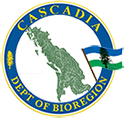The Resilient Communities Project
https://us06web.zoom.us/j/86577386798This workshop will introduce our conceptualization of Resilient Communities and facilitate a collective inquiry into some of the critical requirements for bringing them into being. The purpose of Resilient Communities is to create and enjoy a convivial, equitable, and sustainable way of life through small cooperative communities that: • live in simple, affordable, low-impact dwellings in town or country • regeneratively produce much or most of their own food and other basic needs • nurture the healing and well-being of their members and the wider community • rejuvenate ecosystems while sequestering more carbon than they emit Ecovillages have been aspiring toward something like this for decades with only limited success. The Resilient Communities Project is innovating a systematic new approach to bringing the right combination of people and land together supported by a roadmap illuminating requirements and safeguards for achieving their vision. At the workshop we will provide a brief overview of the approach we are developing and then lead a collaborative investigation of some of the most important requirements for creating successful Resilient Communities.



